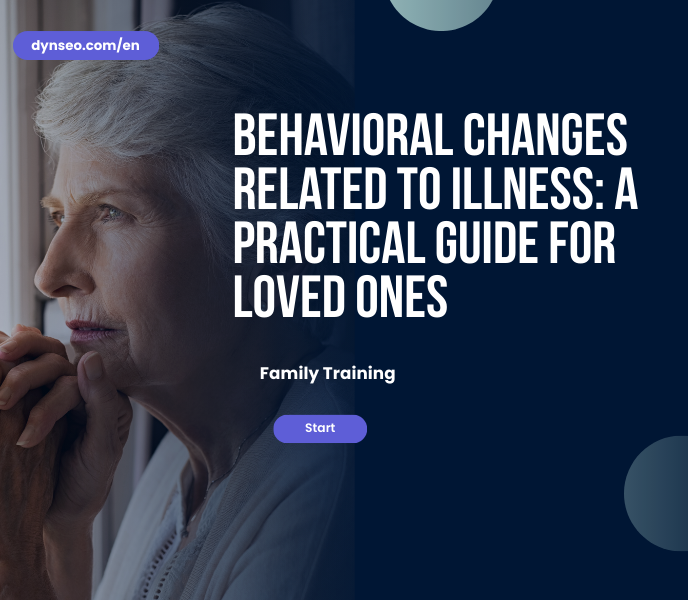
About Course
This training course provides you with simple guidelines for understanding behavioral changes linked to an illness (neurological, psychiatric or chronic), their mechanisms and their consequences on everyday life. It helps you to recognize what is illness rather than “ill will”, to react better to confusing attitudes and to find a calming environment for the whole family. You’ll find concrete strategies, examples of everyday situations and tools to help you feel less alone and more supported.
Training objectives :
– Understand the links between certain diseases (neurodegenerative, psychiatric, brain damage, chronic illnesses…) and behavioral disorders, and the mechanisms that explain them.
– Identify and name the main behavioral changes: agitation, apathy, verbal or physical aggression, disinhibition, withdrawal, impaired judgment, lack of initiative.
– Measure the impact of these behaviors on family life: tensions within the couple, misunderstandings with the children, emotional fatigue of loved ones, feelings of injustice or guilt.
– Learn how to manage difficult behavior on a day-to-day basis: set a clear framework, adjust demands, choose your “battles”, avoid escalation and spot high-risk situations.
– Know how to react when faced with anger or a “crisis”: keep yourself and others safe, adopt calming attitudes, defer discussion, identify triggers to better prevent them.
– Use concrete examples and real-life situations to project yourself into realistic scenarios and test new ways of responding to problem behaviors.
– Reinforcing caring communication within the family: choosing the right words, adapting the tone and timing, validating everyone’s emotions, preserving the bond even when behavior is difficult to cope with.
– Working better with professionals (doctors, psychologists, nurses, occupational therapists, care teams): knowing what to tell them, what questions to ask, how to co-construct strategies.
– Preventing caregiver burnout: identify your own warning signs, accept to ask for help, organize relays, keep some space for yourself without feeling guilty.
– Discover how DYNSEO’s applications, in particular Scarlett (memory coach) and CLINT (brain coach), can support daily life: offering structuring activities, stimulating without overloading, and providing support for exchanges.
A 100% practical course to help you act now: you’ll leave with clear guidelines, concrete strategies and digital tools to help you better understand behaviors, reduce tensions and preserve the bond on a daily basis – for the sick person and for all those close to him or her.
Course Content
Module 1-Understanding the Mechanisms
-
Lesson 1: Diseases That May Present Behavioral Disorders
04:21 -
Lesson 2: Overview of Behavioral Disorders
04:35 -
Lesson 3: Impact on Family Life
03:33
Module 2-Practical Strategies
Module 3-Communication and Support
Module 4- DYNSEO Applications to Provide Support
Student Ratings & Reviews

